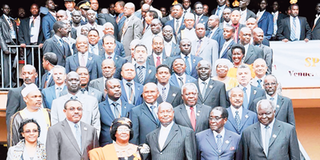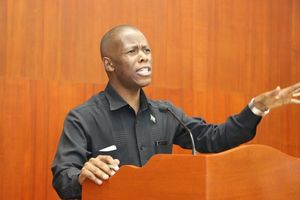Uganda happy with benefits from Comesa free trade area

Some leaders of Comesa member states pose for a group picture at a summit for the regional economic grouping in Kampala in 2012. PHOTO|FILE
What you need to know:
“In 2012 the cabinet approved our entry into the Comesa FTA. And beginning July this year we will start enforcement—benefiting from opportunities that come with being a member of the FTA, so don’t let that opportunity slip.”
Kampala. Uganda’s exports to the 14 member countries of the Common Market for Eastern and Southern Africa (Comesa) free trade zone (FTA) will not attract import taxes beginning July, Mr David Wakikona, the minister of State for Trade, has said.
This development is as a result of the cries of the private sector, particularly manufacturers and traders whose goods would be subjected to at least four per cent tax, making it expensive to trade and compete in the large Comesa market.
Speaking last week at the central regional public awareness workshop on FTA organised by the ministry of Trade, Mr Wakikona said the country should not allow to be reduced to spectators but endevour to capture the opportunities that the Comesa free trade zone presents.
“In 2012 the cabinet approved our entry into the Comesa FTA. And beginning July this year we will start enforcement—benefiting from opportunities that come with being a member of the FTA, so don’t let that opportunity slip.”
According to the ministry’s projections, some of the benefits that the FTA will present include increasing the country’s exports to Comesa by 50 per cent. At the same time, the competitiveness of the private sector is expected to go up given that the four per cent import duty which was being levied as import duty will be no more.
In an interview last week, the Commissioner for External Trade, Mr Silver Ojakol, said the move to join the Comesa FTA was informed by the demand by the private sector to tap the lucrative market with minimum or no restrictions at all.
Although private sector players are in agreement with the government regarding the benefits that the FTA will render, they are not entirely convinced that enough has been done to see the country favourably compete with the other countries.




